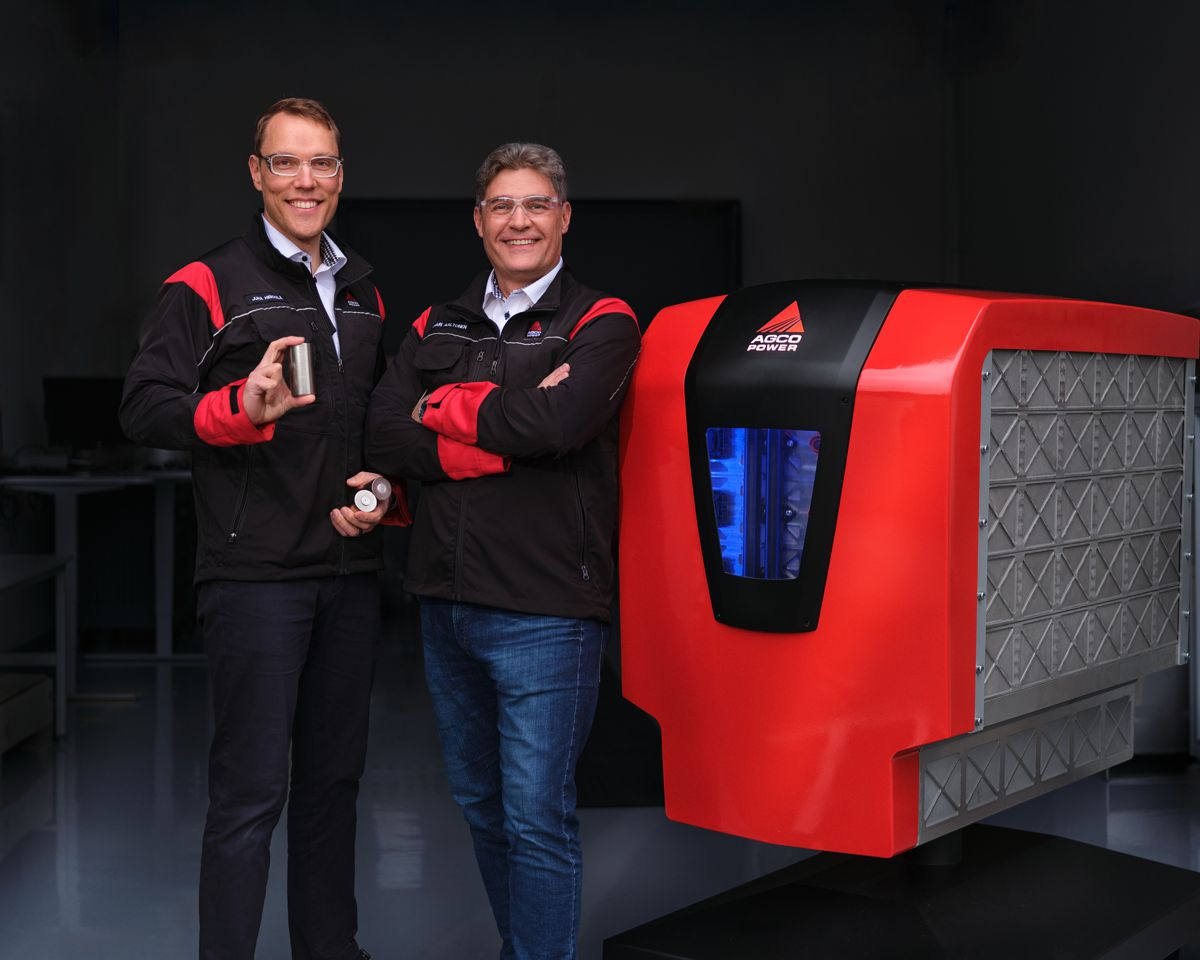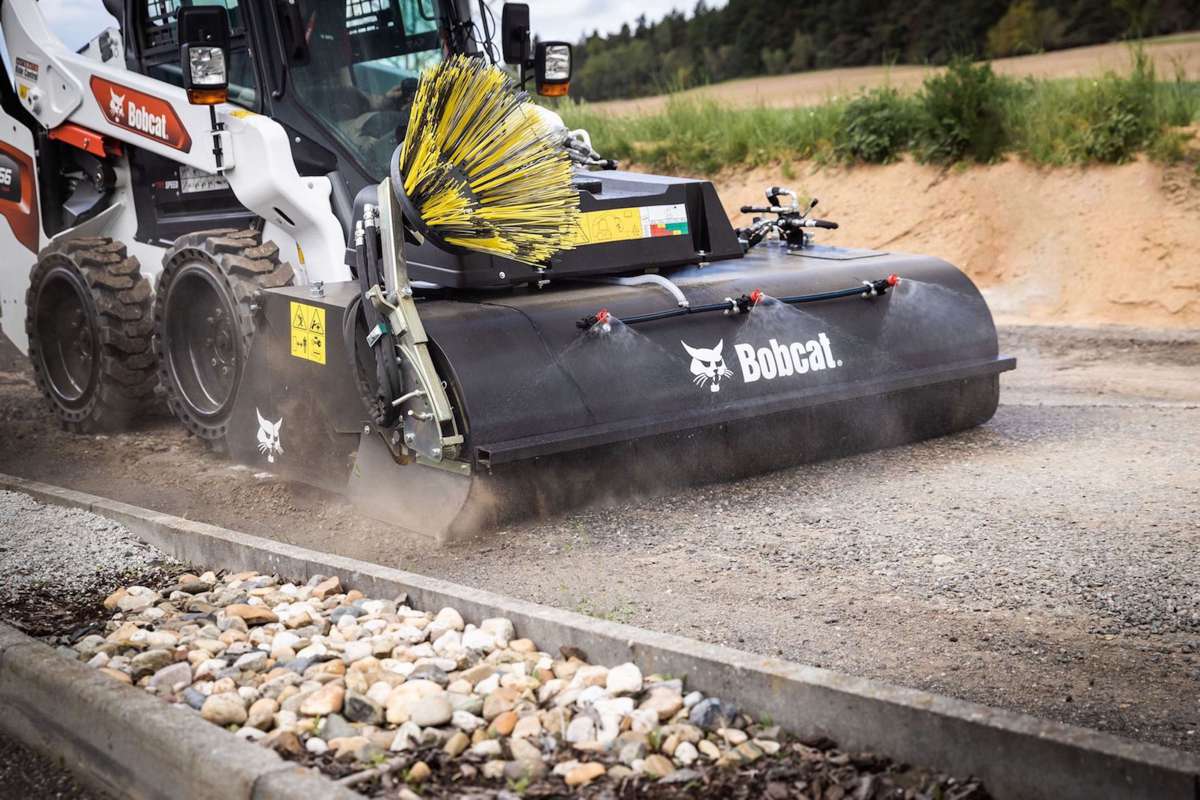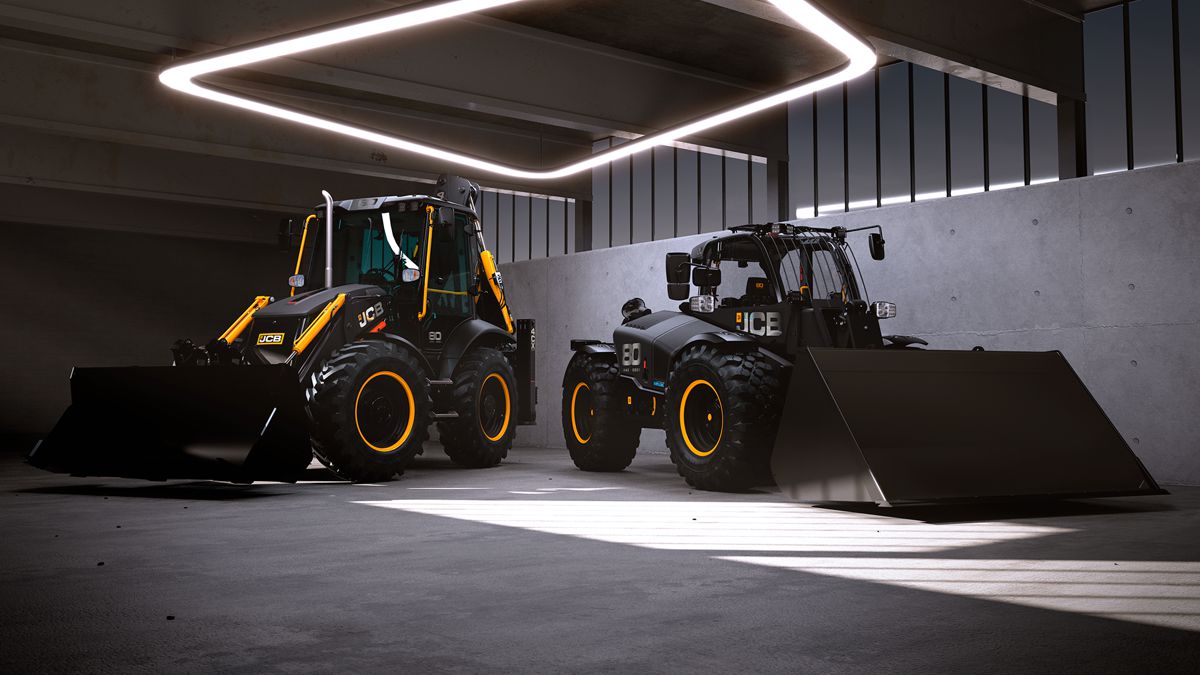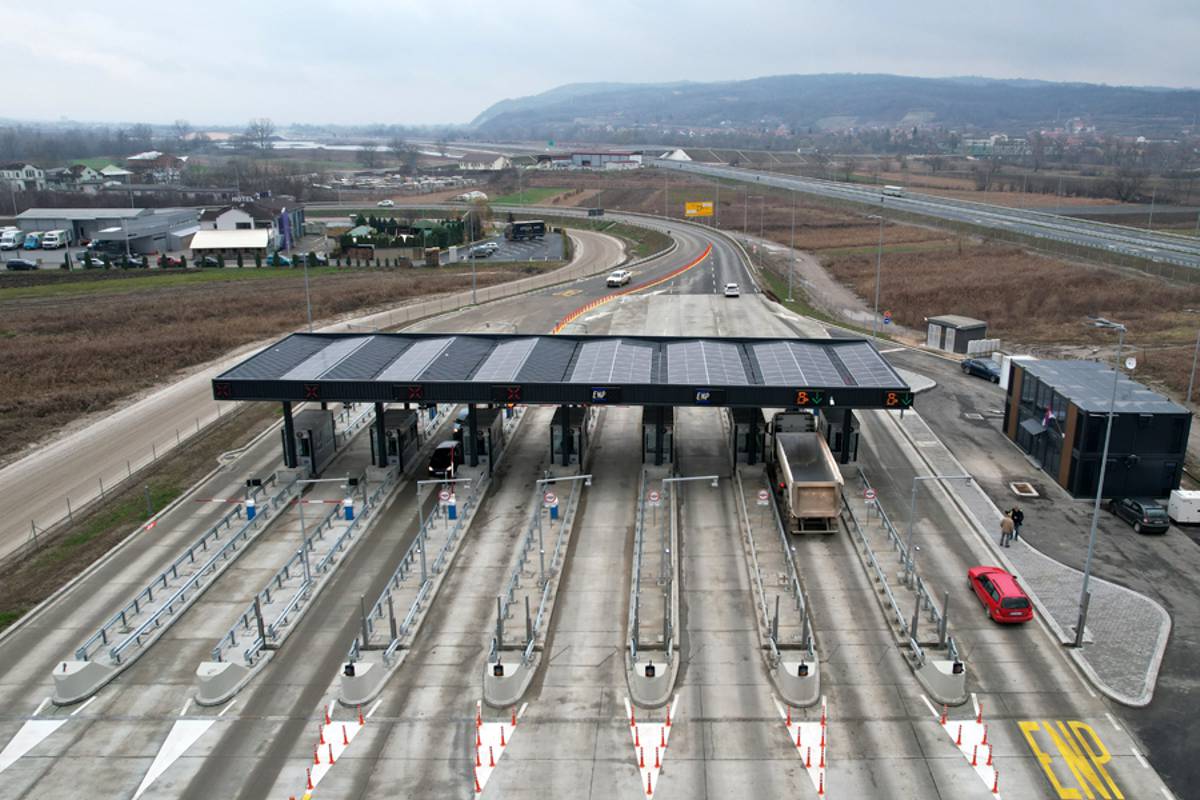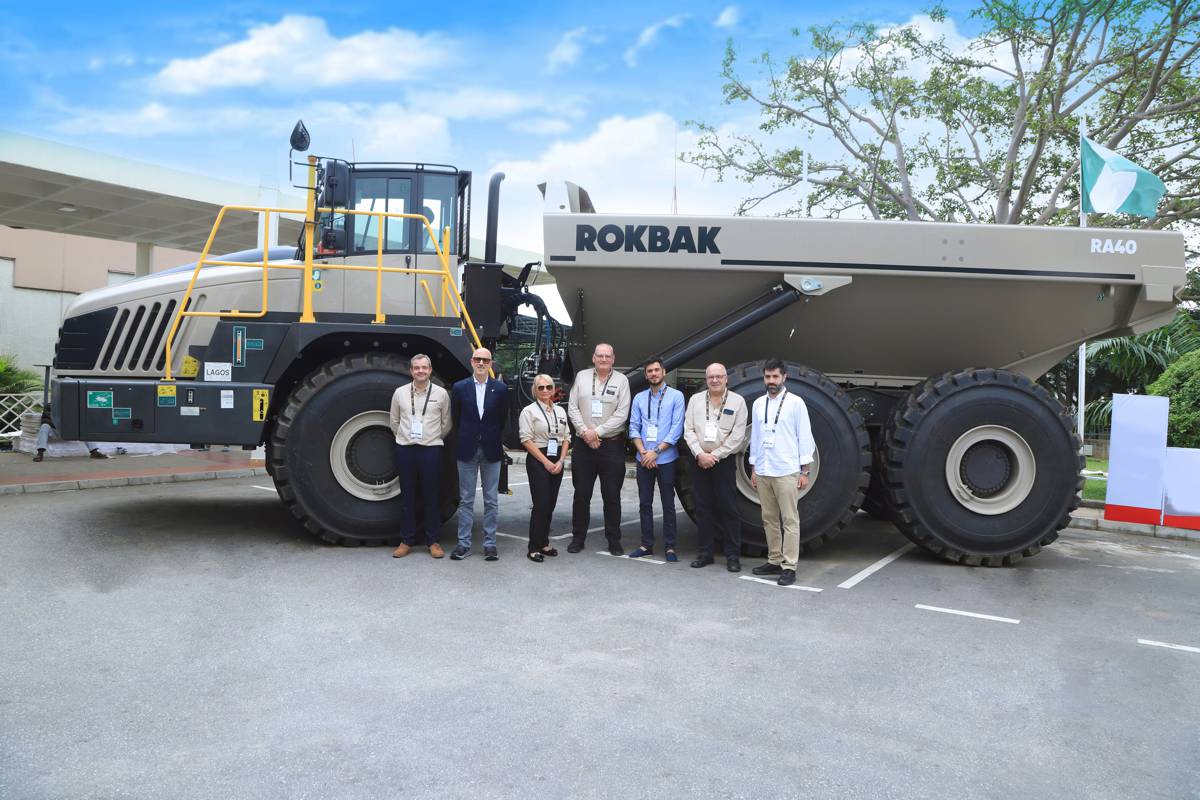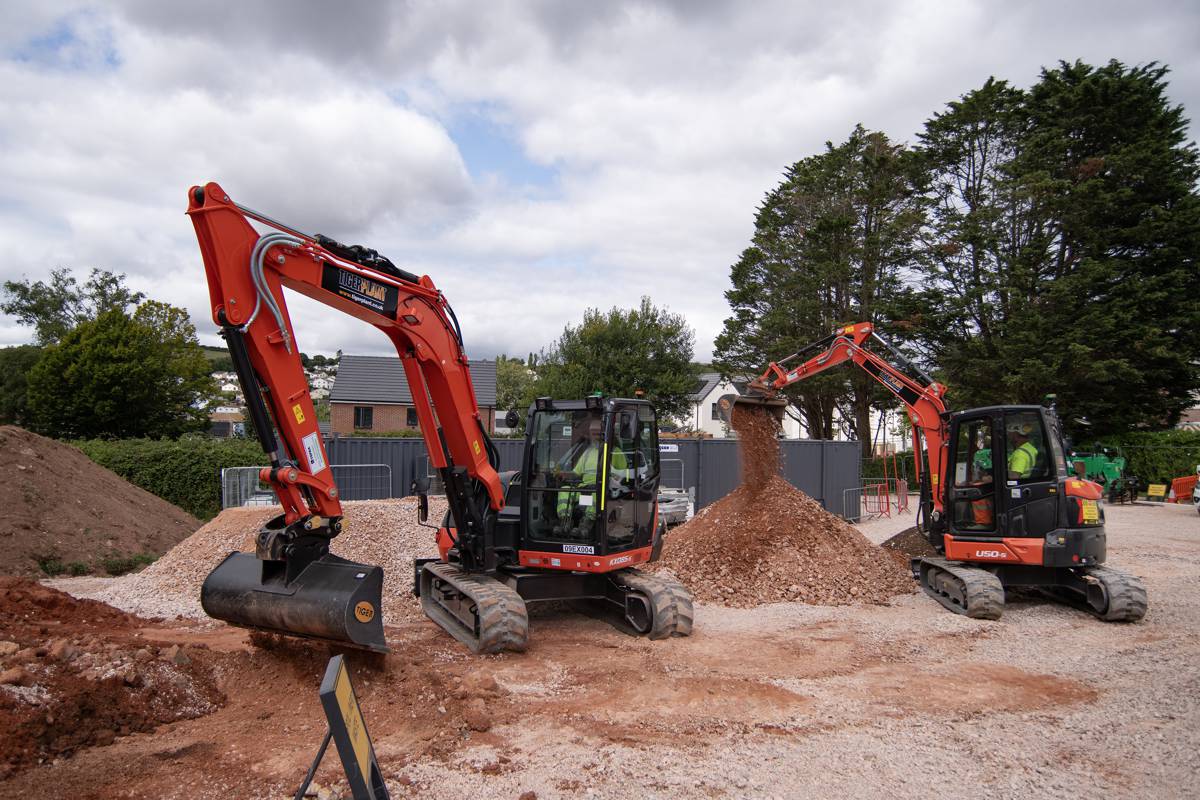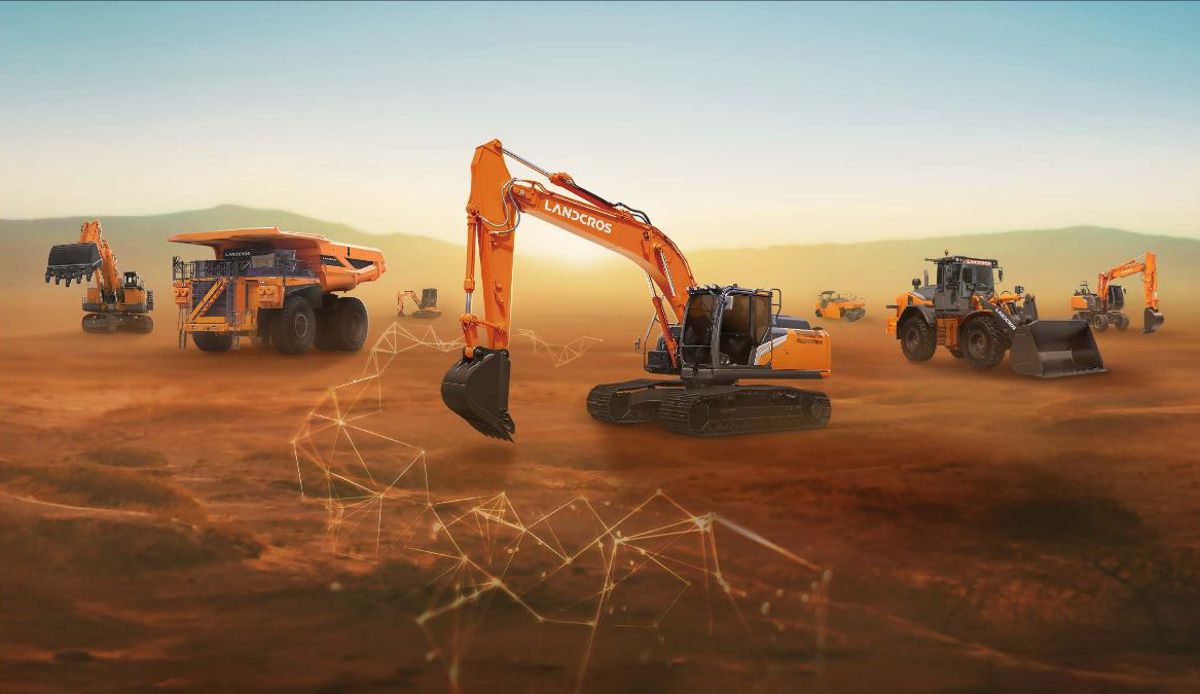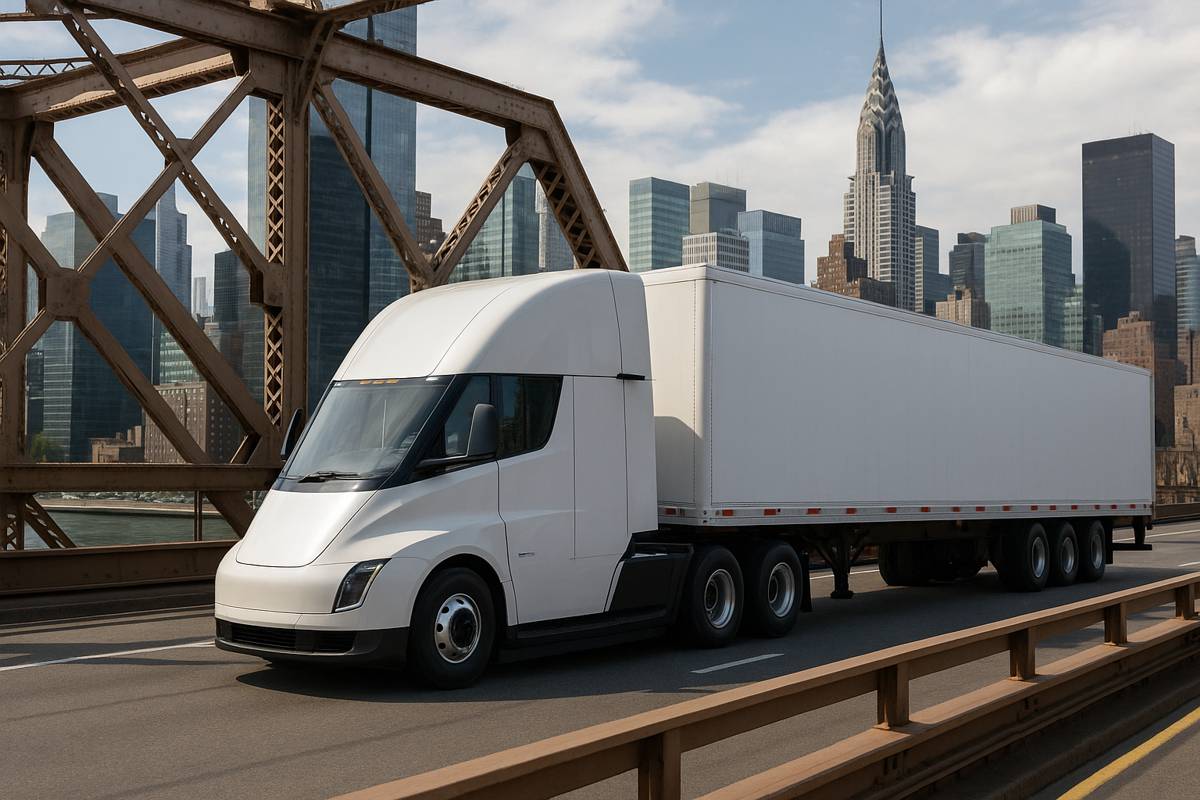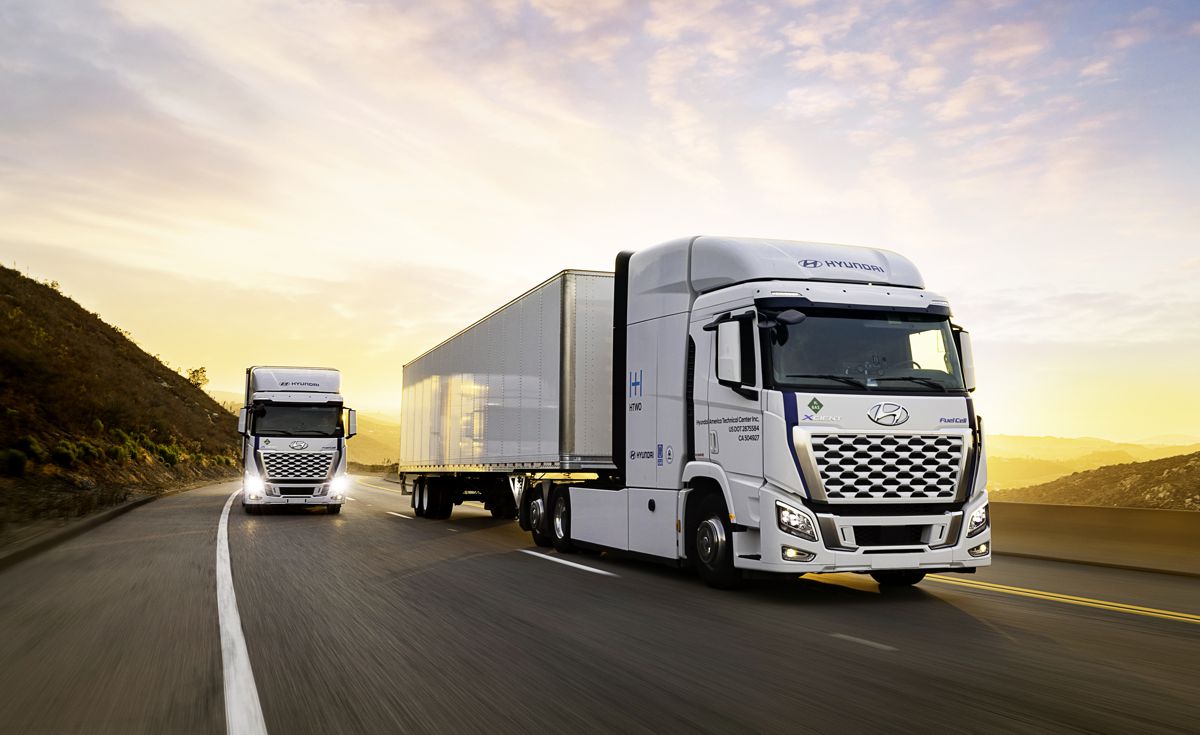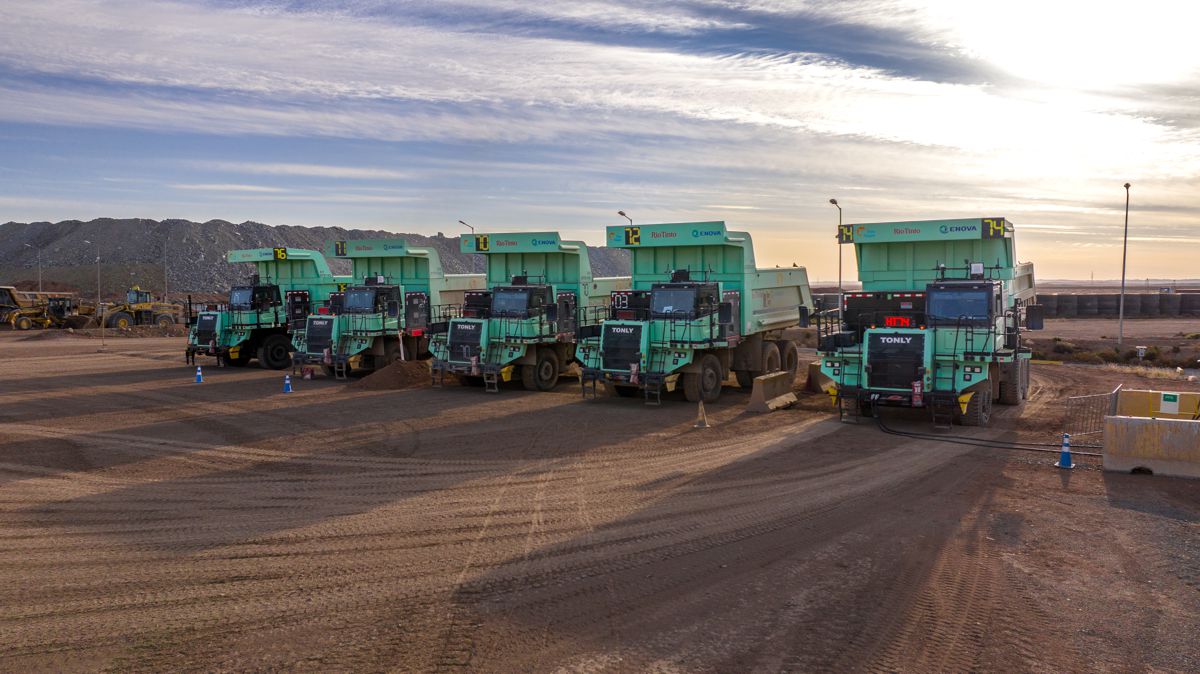Hyundai Xcient heavy-duty hydrogen fuel cell truck set for Switzerland
Hyundai Motor Company today shipped the first 10 units of the Hyundai XCIENT Fuel Cell, the world’s first mass-produced fuel cell heavy-duty truck, to Switzerland.
The company plans to ship a total of 50 XCIENT Fuel Cells to Switzerland this year, with handover to commercial fleet customers starting in September. Hyundai plans to roll out a total of 1,600 XCIENT Fuel Cell trucks by 2025, reflecting the company’s environmental commitment and technological prowess as it works toward reducing carbon emissions through zero-emission solutions.
“XCIENT Fuel Cell is a present-day reality, not as a mere future drawing board project. By putting this ground-breaking vehicle on the road now, Hyundai marks a significant milestone in the history of commercial vehicles and the development of hydrogen society,” said In Cheol Lee, Executive Vice President and Head of Commercial Vehicle Division at Hyundai Motor. “Building a comprehensive hydrogen ecosystem, where critical transportation needs are met by vehicles like XCIENT Fuel Cell, will lead to a paradigm shift that removes automobile emissions from the environmental equation.”
“Having introduced the world’s first mass-produced fuel-cell electric passenger vehicle, the ix35, and the second-generation fuel cell electric vehicle, the NEXO, Hyundai is now leveraging decades of experience, world-leading fuel-cell technology, and mass-production capability to advance hydrogen in the commercial vehicle sector with the XCIENT Fuel Cell,” he added.

XCIENT Fuel Cell
XCIENT is powered by a 190-kW hydrogen fuel cell system with dual 95-kW fuel cell stacks. Seven large hydrogen tanks offer a combined storage capacity of around 32.09 kg of hydrogen. The driving range for XCIENT Fuel Cell is about 400 km on a single refuelling. This was developed to find an optimal balance between the specific requirements from the potential commercial fleet customers and the charging infrastructure in Switzerland. Refuelling time for each truck takes approximately 8-20 minutes.
Fuel cell technology is particularly well-suited to commercial shipping and logistics due to long ranges and short refuelling times. The dual-mounted fuel cell system provides enough energy to drive the heavy-duty trucks up and down the mountainous terrain in the region.
In addition to XCIENT Fuel Cell, Hyundai Motor is developing a long-distance tractor unit capable of traveling 1,000 kilometres on a single charge. It will be equipped with an enhanced fuel cell system with high durability and power, aimed at global markets including North America and Europe.
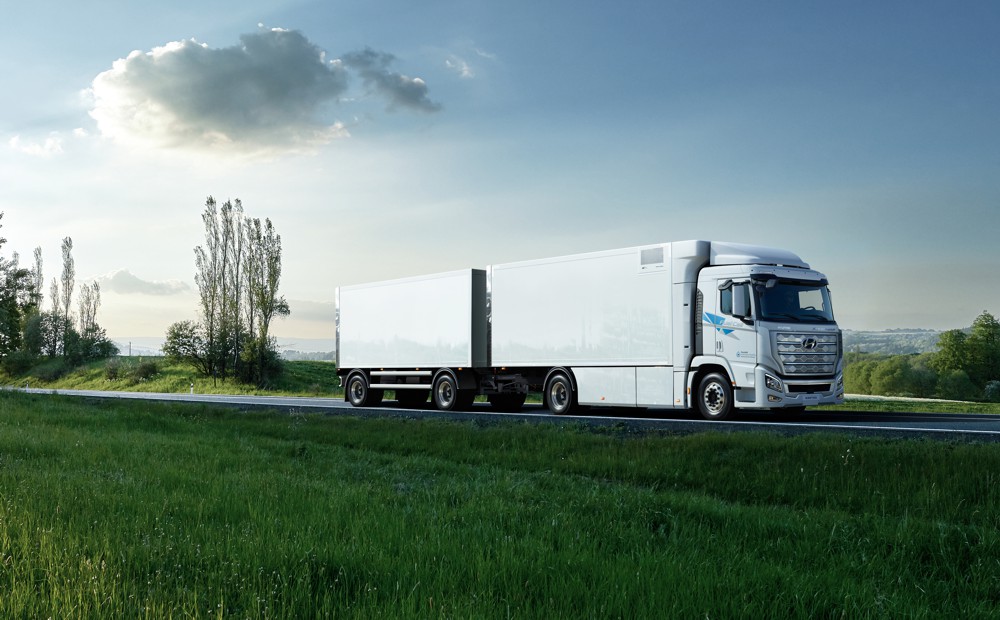
Green Hydrogen Ecosystem
In 2019, Hyundai Motor Company formed Hyundai Hydrogen Mobility (HHM), a joint venture with Swiss company H2 Energy, which will lease the trucks to commercial truck operators on a pay-per-use basis, meaning there is no initial investment for the commercial fleet customers.
Hyundai chose Switzerland as the starting point for its business venture for various reasons. One of the reasons is the Swiss LSVA road tax on commercial vehicles, which does not apply for zero-emission trucks. That nearly equalizes the hauling costs per kilometre of the fuel cell truck compared to a regular diesel truck.
Hyundai’s business case involves using purely clean hydrogen generated from hydropower. To truly reduce carbon emissions, all of the trucks need to run on only green hydrogen. Switzerland is the country with one of the highest shares of hydropower globally, and can therefore deliver sufficient green energy for the production of hydrogen. Once the project is underway in Switzerland, Hyundai plans to expand it to other European countries as well.
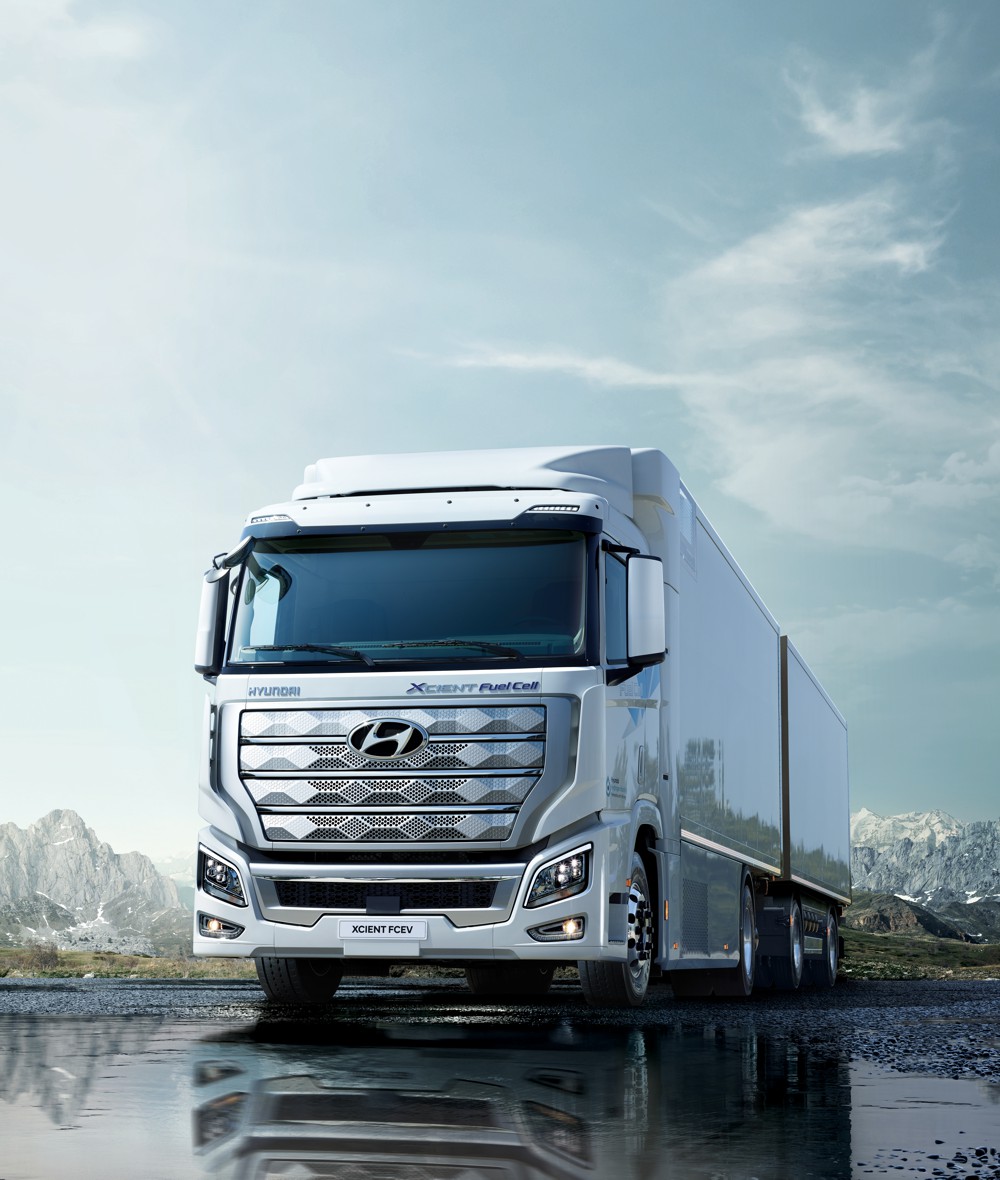
The business case for a hydrogen infrastructure
By using hydrogen-powered vehicles in commercial transportation, Hyundai ensures a steady demand for hydrogen fuel. And by producing industrial hydrogen, Hydrospider ensures a steady supply. This is the basis for the business case that makes hydrogen mobility economically viable and allows it to grow. Through this process, Hyundai will gradually build up a hydrogen infrastructure in Switzerland.
The set-up of the truck-refuelling infrastructure in Switzerland with stations running with 350 bar opens up the chance to extend the network for fuel cell passenger cars as well. Fuel cell passenger cars are refuelled with a pressure of 700 bar. Adding these refuelling solutions to the existing grid will be possible in a cost-effective manner. Access to an adequate hydrogen refuelling infrastructure will reduce range anxiety and encourage more people to purchase hydrogen fuel cell cars. As more people switch to eco-mobility options, carbon emissions will drop, leading to improved air quality and a better future.
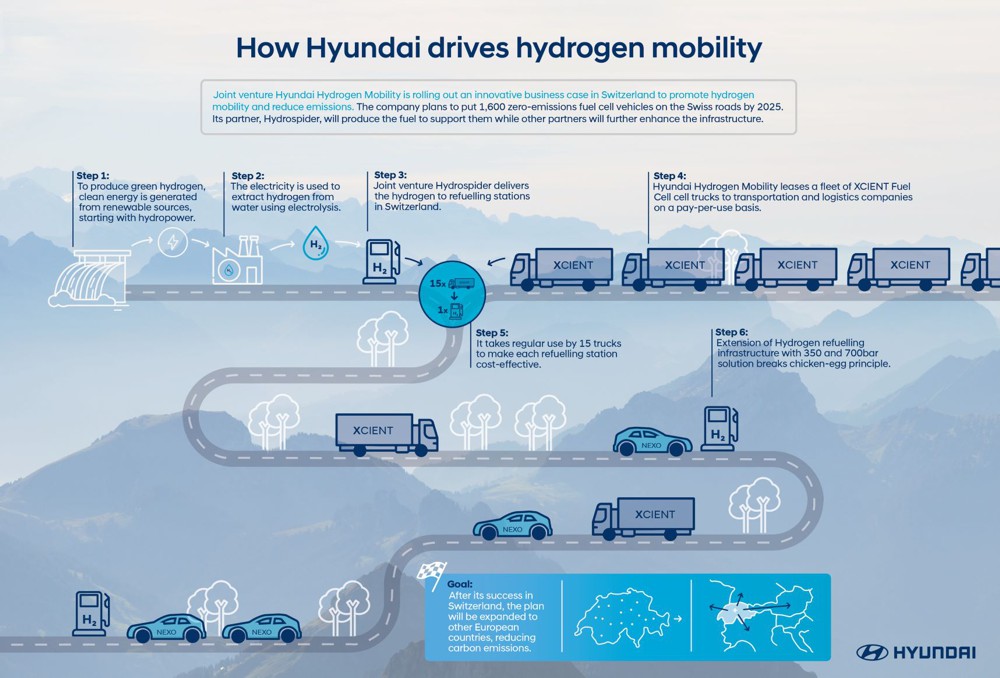
Hyundai Hydrogen Leadership
As Hyundai looks to the future, zero-emissions mobility will play a significant role in the company’s strategy. In addition to the XCIENT Fuel Cell trucks, Hyundai is also the manufacturer of NEXO, its second-generation hydrogen-powered SUV. By 2025, the company aims to sell 670,000 electric vehicles annually, including 110,000 FCEVs.
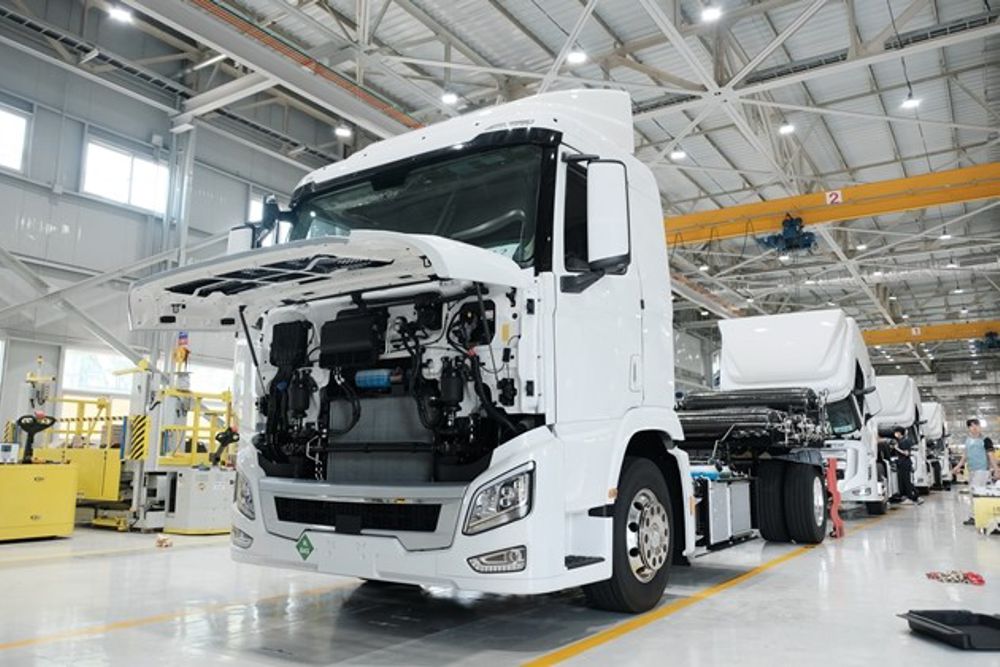
In December 2018, Hyundai Motor Group announced its long-term roadmap, “Fuel Cell Vision 2030”, and reaffirmed its commitment to accelerate the development of a hydrogen society by leveraging its global leadership in fuel cell technologies. As part of this plan, Hyundai Motor Group aims to secure a 700,000-unit-a-year capacity of fuel cell systems for automobiles as well as vessels, rail cars, drones and power generators by 2030.
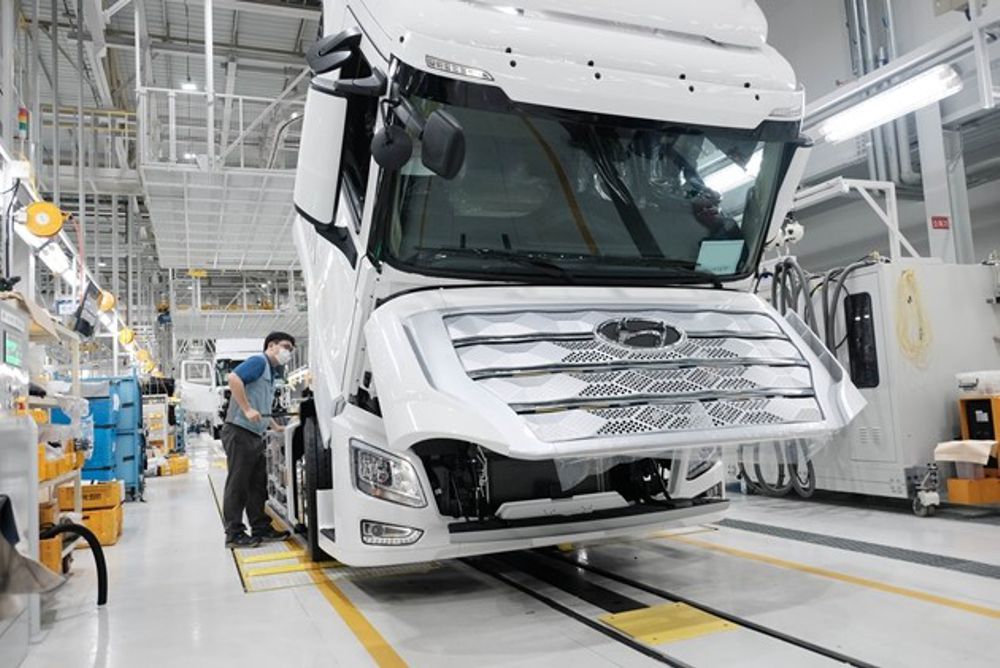
Specifications
- Item Model: XCIENT Fuel Cell
- Vehicle Type: Cargo (Chassis Cab)
- Cab Type: Day Cab
- Drive System: LHD / 4X2
- Wheel Base: 5,130mm
- Overall Dimensions (Chassis Cab)
- Length: 9,745 mm
- Width: 2,515 mm / (2,550 with side protector), Maximum allowable width 2,600 mm
- Height: 3,730 mm
- Weight
- Max. Gross Combination Weight: 36,000 kg as pull-cargo
- Max. Gross Vehicle Weight: 19,000 kg as rigid truck
- Front / Rear: 8,000 kg / 11,500 kg
- Empty Vehicle Weight (Chassis Cab): 9,795 kg
- Drive Range: Accurate range to be confirmed later
- Max. Speed: 85km/h
- Fuel Cell Stack: 190 kW (95 kW x 2 EA)
- Battery: 661 V / 73.2 kWh – by Akasol
- Motor / Inverter: 350 kW / 3,400 Nm – by Siemens
- Transmission: ATM S4500 – by Allison / 6 forward speeds and 1 reverse speed
- Rear Axle ratio: 4.875
- Hydrogen Tank filling Pressure: 350 bar
- Tank capacity: 32.09 kg H2 (available hydrogen amount at SOF 100%)
- Service Brake: Disc
- Auxiliary Brake: Retarder (4-Speed)
- Suspension type: Front Air (2-bag) / Rear Air (4-bag)
- Tires: Front 315/70R22.5 / Rear 315/70R22.5
- Safety front Collision-avoidance Assist (FCA): Standard
- Smart Cruise Control (SCC): Standard
- Electronic Braking System (EBS) +
- Vehicle Dynamic Control (VDC)
- Standard (ABS is included in VDC)
- Lane Departure Warning (LDW): Standard
- Air Bag: Optional









